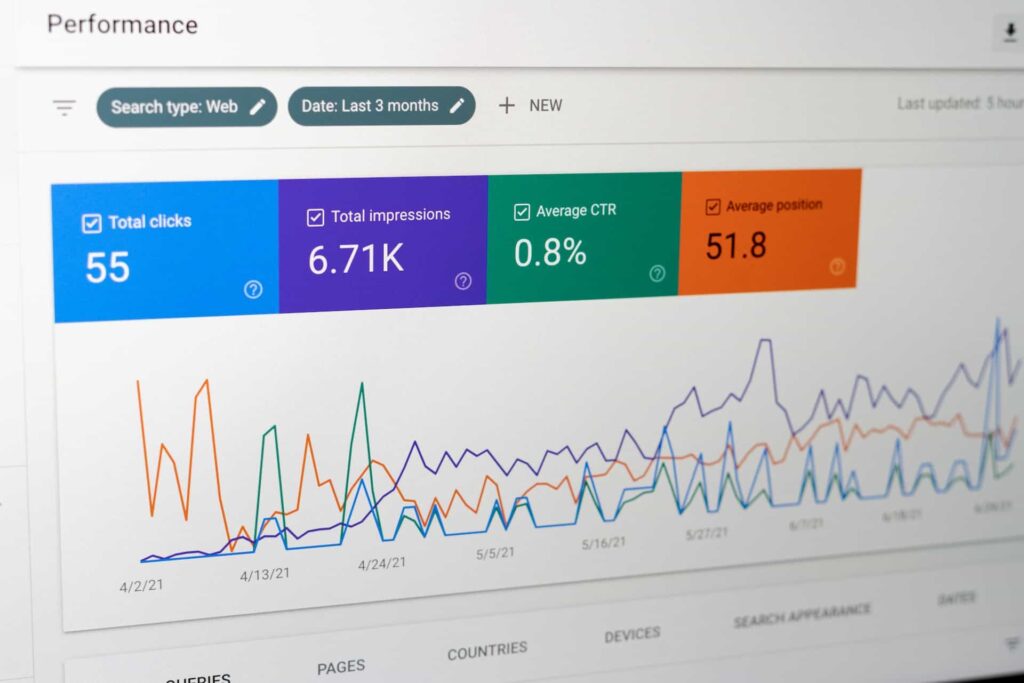SEO for personal injury lawyers is extremely competitive. And while the average cost per click for running ads as a personal injury attorney is higher than in many other industries, there are other solutions.
If you can improve the SEO of your website and content organically, you don’t have to pay a cent for your clicks, making investing in an SEO strategy significantly profitable.
We’ll explore different techniques to up your personal injury SEO game.
Related: What Are Google SERPs?

SEO for Personal Injury Lawyers: Building Backlinks
Even with well-optimized content, if your website has a low domain authority score, outranking your competitors is almost impossible. So how do we get that score up? By acquiring high-quality backlinks.
Building Backlinks With Global Directories
Start by searching for personal injury lawyers in your city or state. You’ll get results that include the top websites people use to find attorneys, like Justia, Super Lawyers, and FindLaw.
Then, add your personal injury firm to these directories — backlinks achieved. While the backlinks from these sites will likely have no-follow tags, they will still help your domain authority and drive more traffic from searches without costing you anything.
Building Backlinks With Local Directories
You can also look for sites that showcase local businesses in your area and add your firm’s information to them — an excellent way to help establish local authority for your business.
Other local directories you can look into include the Chamber of Commerce and the BBB.
Building Backlinks With Media Publications
Another great way to start building quality backlinks is through online news publications. If you have personal injury law news to share or win a massive case, don’t be afraid to contact your local media outlets with the story.
It’s easy to get discouraged when your SEO efforts for your personal injury firm aren’t allowing you to reach Google’s front page — however, ranking in a competitive market doesn’t happen overnight.
Understanding domain authority and creating a plan to obtain more backlinks and get your information on as many directories as possible will increase your chances of ranking highly.
Related: YouTube Backlinks for SEO
SEO for Personal Injury Lawyers: Targeting Keywords
Now, let’s discuss keywords; optimized content won’t drive traffic unless you target the right ones.
You obviously want to rank for “personal injury lawyer” and “[your city] personal injury lawyer,” but you also need to target ones for the specific cases you take.
For example, you might try ranking for “workplace injuries,” “auto accidents,” “dog bites,” etc.
Choosing the Right Keywords for Personal Injury Lawyers SEO
Let’s take workplace injuries as an example — that’s a solid keyword, but it’s not enough. We want to target the keywords people search the most when looking for an attorney to take their workplace injury case.
Working off of workplace injuries as the primary keyword, we would also want to hit the following:
- Workplace compensation lawyer
- Workplace injury lawyer
- Workplace injury claim lawyer
- Workplace injury claim
And to add some local SEO into the mix, we would also target those same keywords with “near me” or “[your city]” tacked on to the end.
Then, you can use tracking tools like SEMRush to see how you rank against other local personal injury lawyers and get ideas about how to outrank them if you fall behind.
Want to improve your SEO for your personal injury practice? It starts with the right SEO agency — Book your meeting here.

SEO for Personal Injury Lawyers: Optimizing Content
When it comes to on-site and on-page SEO, we like to start with the simple things: Targeting keywords in your headings and body text.
For example, your homepage’s H1 should contain your primary keyword and show potential clients what you do — it’s the first thing they’ll see when clicking to your website. Then, your H2 headings should contain variations of that keyword.
Your body text should also contain keywords you want to target scattered throughout the page; however, you have to be careful and ensure they flow naturally.
Optimizing your headings, title tags, and keywords can generate some quick wins, but unfortunately, SEO isn’t that simple; it requires much more detail and strategy.
Make Your Content Location-Specific
When putting together your practice area pages, you need to do more than discuss your services. For example, let’s say we’re optimizing content for a landing page about auto accident claims — we would want to include information like the following:
- Dangerous roads and intersections where accidents commonly happen in your city
- Nearby hospitals that someone might get taken to after a serious accident
- The police stations that would dispatch officers for accidents in different areas
- The courts that your client would deal with based on the accident’s location
- The attorneys at your firm that are experts in auto accident claims
By adding location-specific content to your pages, you can improve your local SEO to outrank other nearby firms more easily. Speaking of local SEO:
Focus on Local SEO for Personal Injury Lawyers
When someone needs a personal injury attorney, they look for one based on location. If you get injured in California, what good is getting search results for a personal injury lawyer in Texas? That’s not helpful.
Your potential clients are specifically looking for a lawyer in your city, so focus your SEO efforts on hitting local keywords — not solely global ones.
For example, someone in California injured in an auto accident is likely searching for a “California car accident lawyer.”
If you can rank in Google’s local pack, you’ll gain prime real estate on the search engine’s first page.
Rethink Your Blog Strategy
Many firms rely on their blog for SEO — however, many of them also miss the mark completely. So much content out there that is thin, doesn’t receive much traffic, and has high bounce rates. Plus, Google penalizes websites for having low-quality blog posts, causing more harm than anything.
If done right, frequent, high-quality, and useful blog posts can drive traffic and help you land more clients. They’re also an amazing resource for adding internal links, gaining backlinks, and setting up meetings from cals to action.
Working with an SEO content agency experienced in writing for personal injury lawyers can breathe new life into your blog posts, keyword targeting, and overall SEO strategy.
Ready to optimize your blog strategy and bring in new clients? Book a meeting with our SEO for personal injury lawyers experts!
Related: Blogging Mistakes to Avoid
Last Updated on June 5, 2023 by Hilda Wong

